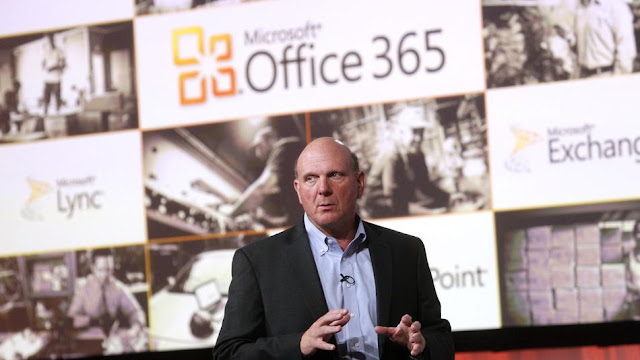Thursday, December 27, 2012
Google Apps or Microsoft Office better for Business?
Microsoft has created a series of ads over the last couple of years specifically targeting Google services such as Gmail and Google Drive. They're well-made snippets that highlight the weaknesses of Google's ad-supported, cloud-first approach to productivity, which stands in contrast to Microsoft's service-driven app model, exemplified by the popular Microsoft Office.
The fact that Microsoft is making these ads at all, though, shows
just how nervous the company is about Google encroaching on its
territory. Which appears to be exactly what's happening, according to a report from The New York Times.
While Google Apps have been the go-to productivity suite for smaller
companies, they're now spreading to the enterprise with big names such
as the U.S. Interior Department and Hoffmann-La Roche, a Swiss
pharmaceutical company, signing on. In addition, for federal government
contracts that both Google and Microsoft competed for in 2012, Google
won 23 to Microsoft's 10, the report says.
The big factor at play is price. Google charges just $50 a year for each person using Google Apps (disclosure: Mashable
uses it) whereas Microsoft's alternative, Office 365, starts at $72.
That number tends to be higher in many use cases, however, particularly
if you want local apps that aren't strictly tied to the cloud. For a
business to "subscribe" to Word, Excel, PowerPoint et al., it costs $150 a year for each employee.
The price of Google Apps hasn't gone up in years, although Google recently discontinued offering a limited version for free.
Although Microsoft has enterprise-focused services such as Lync,
Sharepoint and now Yammer, Google has found a reliable model in offering
a best-in-class consumer service for free (either as a loss leader or
supported by ads) and watching businesses adopt it for their uses.
A good example is Google Hangouts.
The multi-person video chats, which are tied to Google+, have caught on
as an easy way to video conference and even host panels (now that users
can "broadcast" a hangout). So far Google doesn't charge for Hangouts,
although the company has recently re-positioned the pricing of products
such as Google Drive to serve both everyday users and business.
Another factor: Subscribing to Microsoft Office doesn't include
web-based email. Although Microsoft does offer email storage with its
Outlook.com service, that isn't tied directly to the Outlook app in
Microsoft Office, as they are two entirely different pieces of software,
with different back ends.
Which do you use for your business: Google Apps or Microsoft Office?
What would compel you to switch? Share your thoughts in the comments.
Image courtesy of Microsoft
By Pete Pachal
Read more on http://mashable.com/2012/12/26/google-apps-microsoft-office-2/
Subscribe to:
Post Comments (Atom)











No comments:
Post a Comment
Interesting? Please leave a comment here: